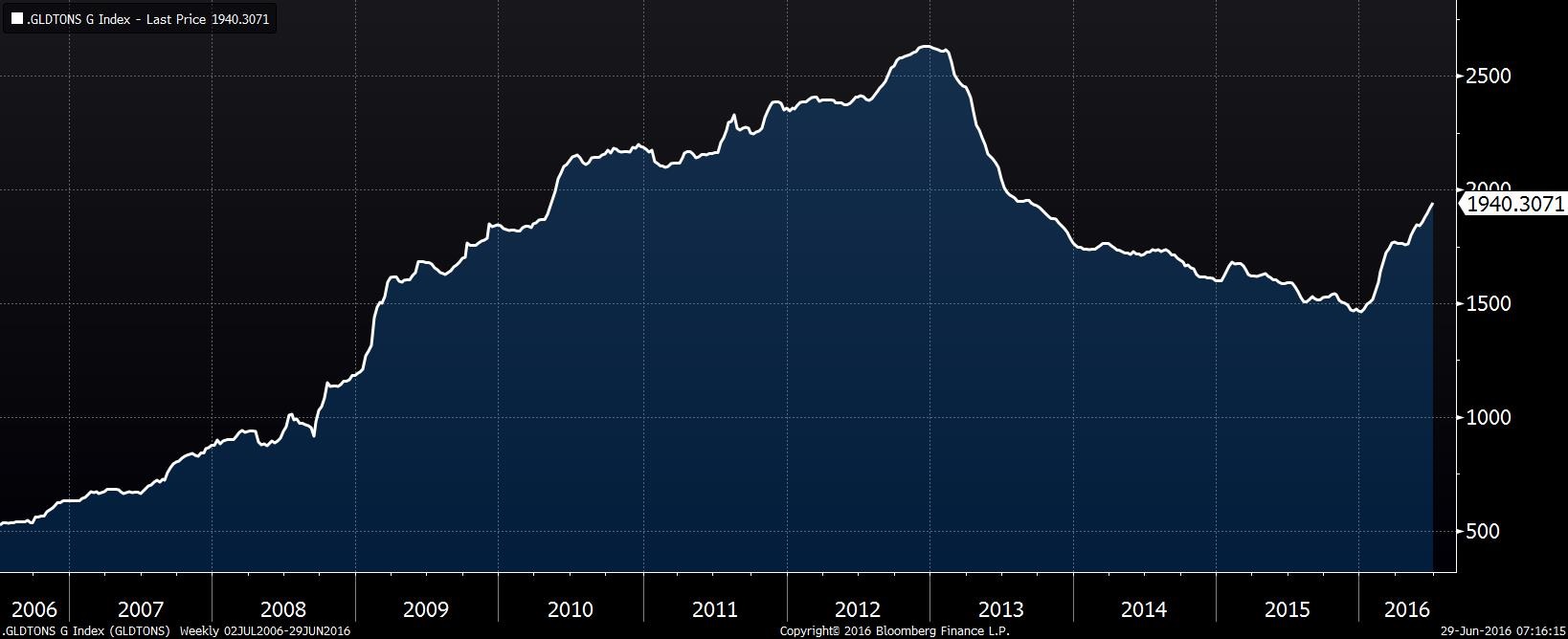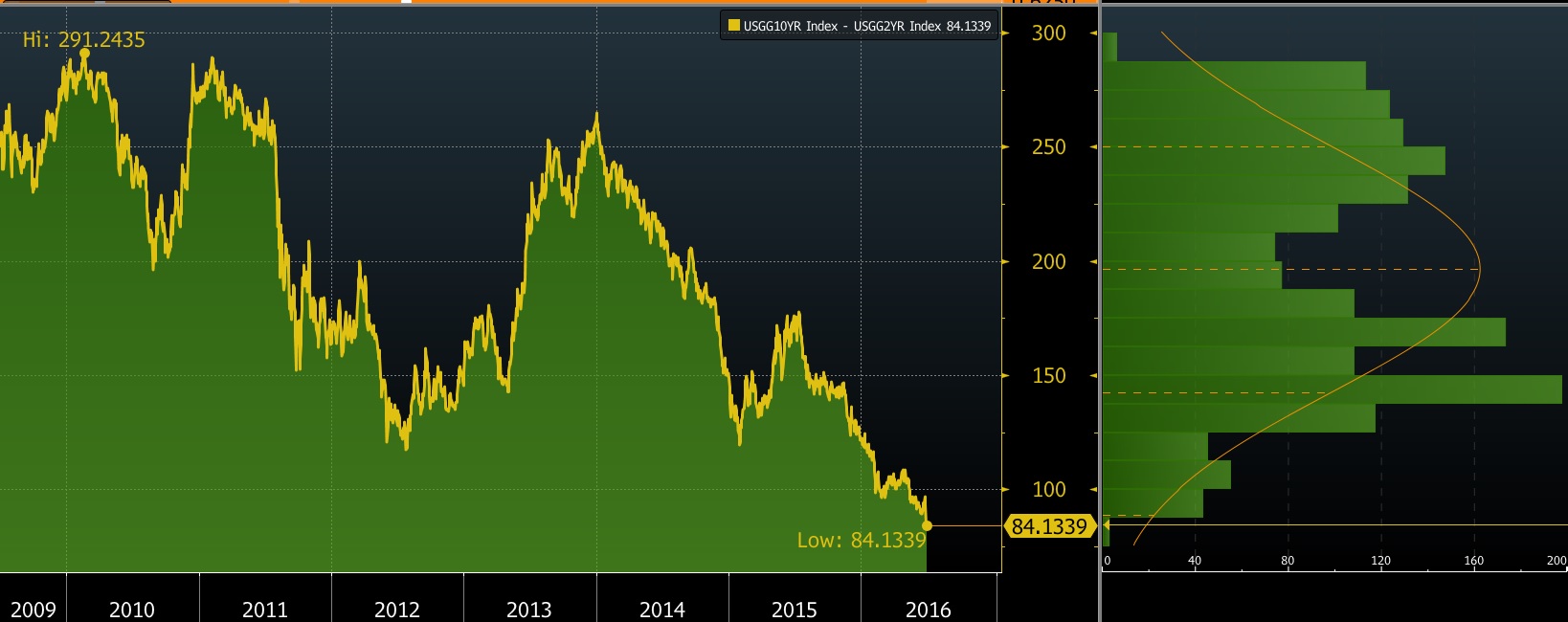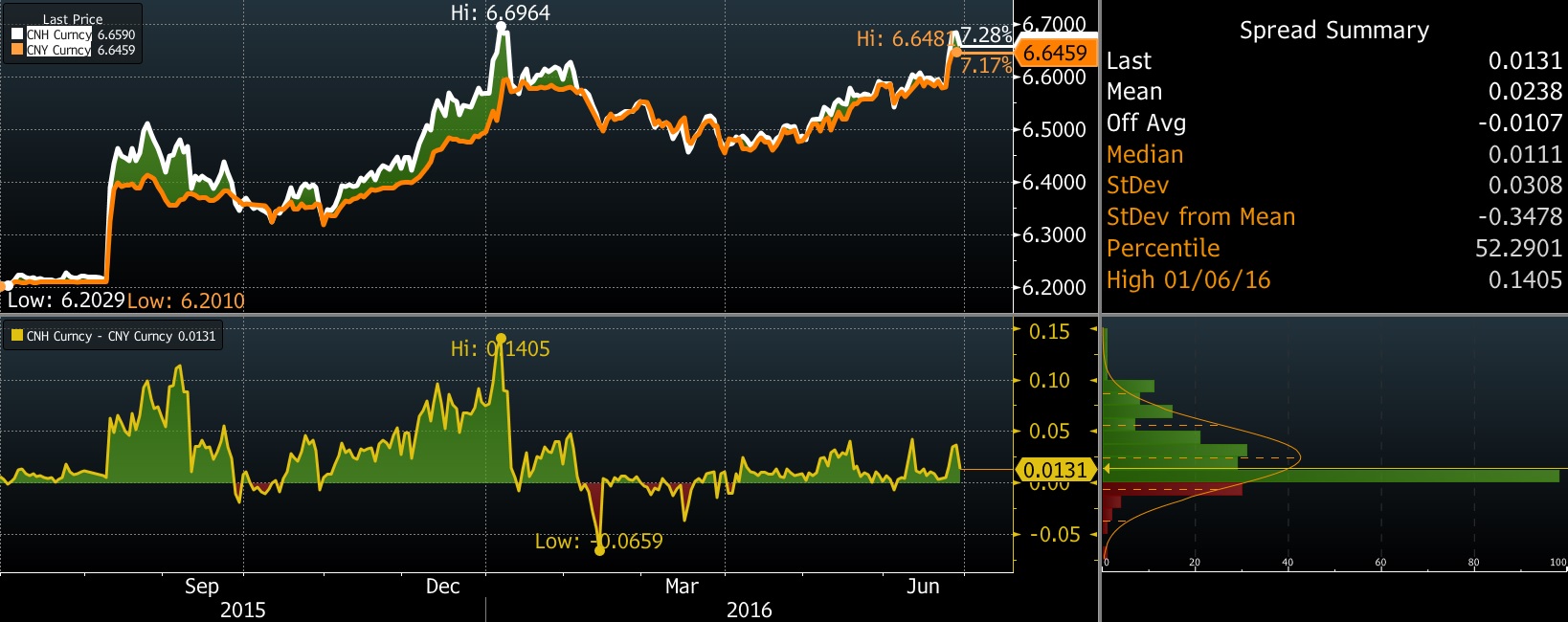Daily Comment (June 29, 2016)
by Bill O’Grady and Kaisa Stucke
[Posted: 9:30 AM EDT] Although global equity markets continue to rally, we are seeing a rather curious trade across financial and commodity markets. Notably, gold and long-duration Treasuries remain strong. Two charts highlight the impact. First, we note that inflows into gold ETPs are steadily rising.
This chart shows the holdings of all gold ETPs in metric tons. Since the beginning of the year, inflows have been rising steadily as investors appear to be using gold as a hedge against uncertainty.
Second, as long-duration Treasury yields fall, the yield curve continues to flatten.
The spread between two- and 10-year T-notes is down to 84 bps, the lowest since the recession began and clearly the lowest since the recovery began in mid-2009. What is occuring is a classic “bull flattening,” where yields on the long end fall faster than yields on the short end. A flattening curve is a warning sign for economic growth. We note that Governor Powell’s remarks in Chicago yesterday were dovish. He suggested the uncertainty coming from Brexit is enough to require a “more patient posture” for future rate changes.
Meanwhile, the political situation in the U.K. is becoming increasingly curious. Jeremy Corybn, the leader of the Labour Party, suffered a devastating loss in a no-confidence vote, losing 172-40. Corybn refused to step down, refuting the will of Labour MPs. This measure taken by Labour MPs cannot force Corybn out of office. Those opposing Corybn could force a leadership vote, which is sort of a primary by the Labour Party, but we doubt Corybn would lose given that he is wildly popular among Labour constituents. If the Tories call for an election to settle their own internal party issues, Labour MPs fear that a Corybn-led party will lose badly in a general election. Although there is much talk about cutting a deal with the EU that will allow the U.K. to operate in Europe much like it does today, Chancellor Merkel continues to signal that this outcome isn’t likely. Although there is a clear path for negotiation, namely, that the U.K. be given more immigration control, EU leaders fear that if this concession is granted, all the states will clamor for a similar deal and the free movement of persons in the EU will end.
In the end, this may be a concession EU leaders will have to grant. All accounts suggest that this whole issue turned on immigration. Germany can live with allowing border crossings to return; however, the German economy can’t function if the free trade zone of the EU is lost. After all, the Eurozone has become a de facto German colony where Germany effectively forces its exports on the rest of Europe, which cannot use currency depreciation to offset German policies. Although the dream of EU elites is the free movement of people that allows Europe to mimic the U.S., in the end, that simply may not be possible.
We note that Sen. Sanders has an op-ed in today’s NYT warning his party that the Brexit vote, a vote in part against globalization, could happen in the U.S. as well. In fact, his campaign, in terms of economics, is very similar to Donald Trump’s. Sanders rejects the xenophobic rhetoric of both Brexit and Trump; however, what Sanders can’t prove or admit is that xenophobia is probably necessary to sell deglobalization.
Another factor boosting sentiment is that China continues to maintain control of the offshore yuan (CNH).
This chart shows the CNY/USD and CNH/USD exchange rates (top chart) and the spread (bottom chart). The CNH is the offshore exchange rate that the PBOC has less control over; in fact, the only way it can control that rate is through direct intervention. When the spread widens, we tend to see rising market volatility. It is clear that the PBOC is determined to keep the spread under control since spiking early this year. A weaker CNH is a proxy for capital flight. A rising CNH (meaning it’s weakening against the dollar) suggests rising outflows. The persistent intervention probably means that outflows are effectively being subsidized by the Chinese financial authorities, but, to the world, it looks like outflows are being controlled.





